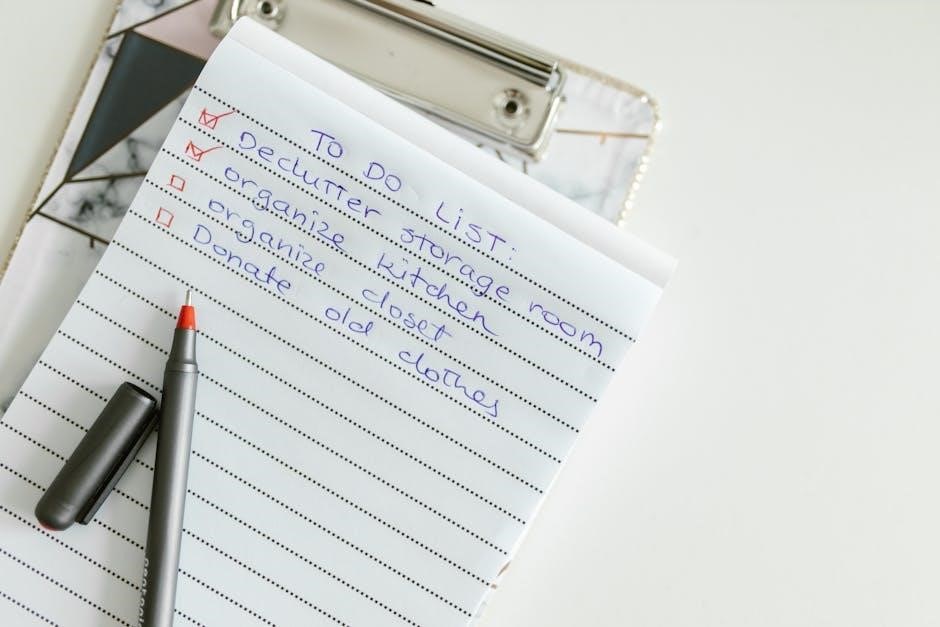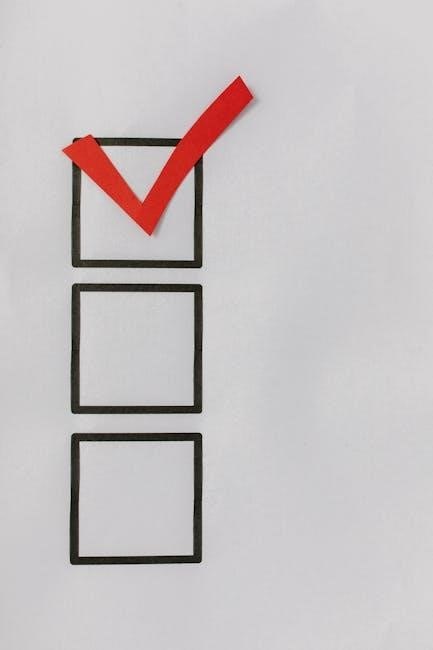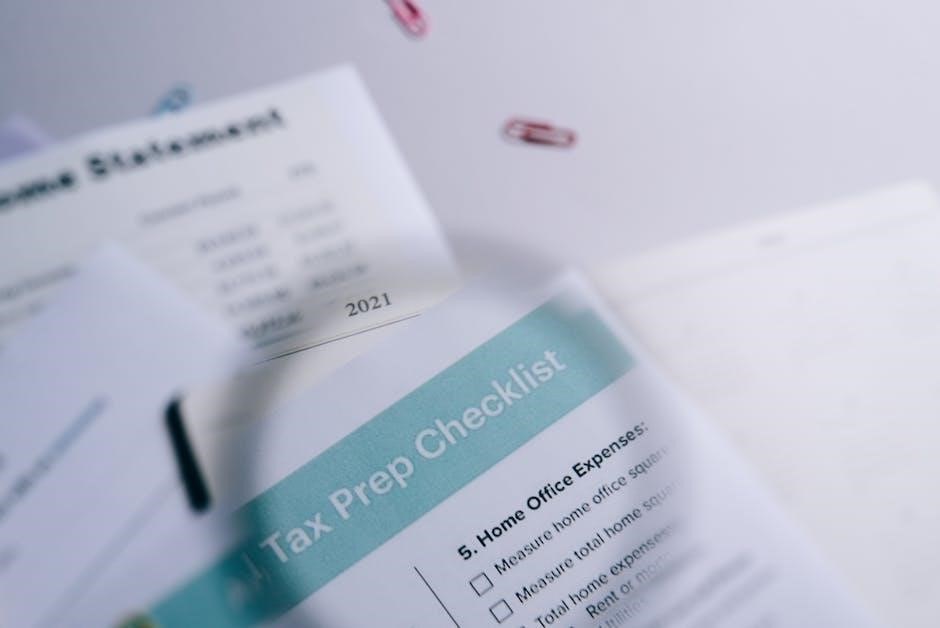Understanding ADLs and Their Importance
ADLs are essential daily tasks like eating, bathing, and dressing, crucial for independent living; They help assess functional abilities and guide care planning, ensuring individuals maintain dignity and well-being.
Activities of Daily Living (ADLs) are fundamental tasks individuals perform daily to maintain personal care and independence. These include essential self-care activities such as bathing, dressing, eating, toileting, and transferring. ADLs are categorized into basic and instrumental tasks, with basic ADLs focusing on personal hygiene and mobility, while instrumental ADLs involve more complex skills like cooking and managing finances. Understanding ADLs is crucial for assessing an individual’s ability to live independently and for identifying the level of care or assistance they may require. Healthcare professionals often use standardized tools, such as the Katz Index or the Bristol Activities of Daily Living Scale, to evaluate a person’s functional abilities. These assessments help in creating personalized care plans to promote independence and overall well-being.
Why ADLs Are Crucial for Independent Living
ADLs are vital for maintaining independence, as they represent the fundamental skills needed for daily functioning. Proficiency in these activities ensures individuals can care for themselves, maintaining dignity and well-being. Declines in ADL performance often signal the need for additional support or care. Evaluating ADLs helps identify specific challenges, enabling tailored interventions to enhance independence. Tools like the Katz Index and Bristol Scale assess these abilities, providing insights into functional capacity. By addressing ADL needs, caregivers and healthcare providers can promote self-sufficiency, improve quality of life, and delay potential declines in independence. Thus, understanding and supporting ADLs is central to fostering autonomy and overall health in individuals of all ages and abilities.

Basic vs. Instrumental ADLs
Basic ADLs include fundamental self-care tasks like eating, bathing, and dressing, while instrumental ADLs involve more complex activities such as cooking, shopping, and managing finances.
Defining Basic ADLs
Basic ADLs are fundamental self-care tasks essential for daily living. They include activities like eating, drinking, dressing, grooming, bathing, using the toilet, and transferring from bed to chair. These tasks are vital for maintaining personal hygiene and physical well-being. Assessing these activities helps determine an individual’s ability to live independently. Tools like the Katz Index focus on these basic ADLs to evaluate functional independence. Understanding and tracking these activities through a checklist ensures proper care planning and support for individuals needing assistance. Regular assessment of basic ADLs is crucial for identifying needs and promoting quality of life.
Exploring Instrumental ADLs
Instrumental ADLs (IADLs) are more complex tasks that enable individuals to live independently in their communities. They include activities like managing finances, cooking, cleaning, shopping, and using transportation. Unlike basic ADLs, IADLs require cognitive and organizational skills. These tasks are crucial for maintaining a household and participating in social activities. Assessing IADLs helps identify an individual’s ability to manage daily responsibilities beyond personal care. Tools like the Bristol Scale and Katz Index often incorporate these activities to provide a comprehensive evaluation. Understanding IADLs is essential for creating care plans that support independence and quality of life, ensuring individuals can safely and effectively manage their environments and responsibilities.

Key Components of an ADL Checklist
A comprehensive ADL checklist includes personal hygiene, dressing, feeding, mobility, and toileting. It also measures functional abilities and provides a framework for creating personalized care plans effectively.
Personal Hygiene and Grooming
Personal hygiene and grooming are fundamental components of ADLs, ensuring individuals maintain cleanliness and present themselves with dignity. Key activities include washing hands, brushing teeth, bathing or showering, and using the bathroom. Grooming involves combing or brushing hair, shaving, and applying necessary personal care products. These tasks are essential for physical health, social interactions, and self-esteem. Difficulty in performing these activities may indicate a need for assistance. An ADL checklist often assesses these tasks to evaluate independence levels and provide targeted support. Proper hygiene practices prevent infections and promote overall well-being, making them a critical focus in care planning and daily living assessments.
Dressing and Undressing
Dressing and undressing are essential ADLs that involve selecting appropriate clothing, putting it on, and removing it. These tasks require coordination, balance, and fine motor skills. An individual’s ability to dress independently is a key indicator of functional independence. Dressing includes choosing clothes suitable for the occasion, putting on and taking off shoes, and managing fasteners like buttons or zippers. Challenges in dressing may signal the need for adaptive tools or assistance. An ADL checklist often evaluates whether a person can perform these tasks without help, with supervision, or if they require full assistance. Dressing and undressing are vital for maintaining dignity, mobility, and protection from environmental factors, making them a critical component of daily living assessments and care planning.
Feeding and Nutrition
Feeding and nutrition are fundamental ADLs that involve preparing meals, using utensils, chewing, and swallowing. These tasks are critical for maintaining health and energy levels. An individual’s ability to feed themselves independently is a key indicator of functional independence. Feeding includes tasks like cutting food, bringing utensils to the mouth, and consuming meals without assistance. Challenges in feeding may indicate the need for adaptive tools or assistance. An ADL checklist often assesses whether a person can prepare and consume meals independently or if they require help. Proper feeding and nutrition are essential for overall health, preventing malnutrition, and ensuring energy for daily activities. This ADL is vital for maintaining quality of life and physical well-being.
Mobility and Transferring
Mobility and transferring are critical ADLs that involve moving safely from one place to another and changing positions. These tasks are essential for maintaining independence and preventing falls. Mobility includes walking, climbing stairs, and standing from a sitting position. Transferring refers to moving from a bed to a chair, using a wheelchair, or getting in and out of a bath. An ADL checklist evaluates whether an individual can perform these tasks independently or if they need assistance. Challenges in mobility may require the use of aids like walkers or wheelchairs. Proper mobility and transferring are vital for maintaining physical freedom and reducing the risk of injuries; They are key components of daily living that significantly impact overall quality of life and independence.
Toileting and Continence
Toileting and continence are fundamental ADLs that involve using the bathroom and managing bowel and bladder functions. These tasks are essential for personal hygiene and dignity. An ADL checklist assesses whether an individual can locate the toilet, sit down, and perform the necessary tasks independently. Continence refers to the ability to control bladder and bowel functions without accidents. Challenges in this area may indicate the need for assistive devices or caregiver support. Proper toileting and continence management are crucial for maintaining health, preventing infections, and ensuring comfort. They are key indicators of independent living and overall well-being, often evaluated in care planning to provide appropriate support and resources.

Assessment Tools for ADLs
Standardized tools like the Katz Index and Bristol Scale evaluate ADL performance, providing insights into functional abilities and care needs, ensuring accurate and reliable assessments for individuals.
Katz Index of Independence in ADLs
The Katz Index is a widely used tool to measure independence in six ADLs: bathing, dressing, toileting, transferring, continence, and feeding. It assesses functional abilities on a scale, with higher scores indicating greater independence. This tool helps caregivers and healthcare professionals determine the level of assistance needed. By evaluating these daily tasks, the Katz Index provides a clear framework for understanding an individual’s ability to live independently. It is particularly useful in long-term care settings, offering insights into a person’s functional status and guiding personalized care plans effectively. This assessment is straightforward and reliable, making it a cornerstone in geriatric and rehabilitation care.
Bristol Activities of Daily Living Scale
The Bristol Activities of Daily Living Scale is a tool used to assess functional decline in individuals, focusing on six key areas: bathing, dressing, toileting, transferring, continence, and feeding. Each activity is scored on a scale from 0 to 4, where 0 indicates the inability to perform the task, and 4 signifies independent completion. This scale is particularly useful for tracking progression in conditions like dementia. It provides a detailed overview of an individual’s ability to manage daily tasks, helping caregivers and healthcare professionals develop tailored support plans. The Bristol scale is practical and easy to use, making it a valuable resource for monitoring functional changes and improving care outcomes. It complements other ADL assessments, offering a comprehensive view of daily living skills.

Creating an Effective ADL Checklist
Developing an ADL checklist involves identifying key activities like bathing, dressing, and feeding. It helps track daily tasks, ensuring personalized care plans and promoting independence effectively.
Identifying Key Activities for Assessment
Identifying key activities for assessment involves evaluating essential tasks that individuals perform daily to maintain independence. These activities include bathing, dressing, feeding, toileting, and transferring. Each task is observed to determine if the person can perform it independently, with assistance, or not at all. Tools like the Katz Index and Bristol Scale provide structured frameworks for evaluating these activities. By focusing on specific ADLs, caregivers can identify areas where support is needed. For example, if an individual struggles with dressing, adaptive strategies or aids may be recommended. Accurate assessment ensures personalized care plans, promoting safety, dignity, and overall well-being. This step is crucial for developing effective interventions and monitoring progress over time.
How to Use the Checklist for Care Planning
A well-structured ADL checklist is a valuable tool for creating personalized care plans. Start by assessing the individual’s ability to perform each activity, noting whether they can do it independently, with assistance, or not at all. This information helps identify specific needs and priorities. For example, if bathing is a challenge, the care plan might include adaptive equipment or scheduling assistance. The checklist also serves as a communication tool for caregivers, ensuring consistency in support. Regularly reviewing and updating the checklist allows for monitoring progress and adjusting the care plan as needed. This approach ensures tailored interventions, promotes safety, and enhances the individual’s quality of life. By focusing on actionable insights, the checklist becomes a cornerstone of effective care planning.
ADL checklists are essential tools for promoting independence and improving care quality. They help identify needs, track progress, and guide personalized support, enhancing overall well-being effectively.
The Role of ADL Checklists in Promoting Independence
ADL checklists play a vital role in promoting independence by tracking daily living skills like eating, dressing, and grooming. They provide clear insights into an individual’s capabilities, helping caregivers identify areas needing support; By focusing on specific tasks, these tools enable tailored care plans that emphasize maintaining independence. Regular use of ADL checklists ensures personalized assistance, allowing individuals to retain autonomy in daily routines. This targeted approach not only enhances quality of life but also empowers those in need to thrive with dignity. Ultimately, ADL checklists are invaluable resources for guiding effective care and fostering independence in individuals of all ages and abilities.